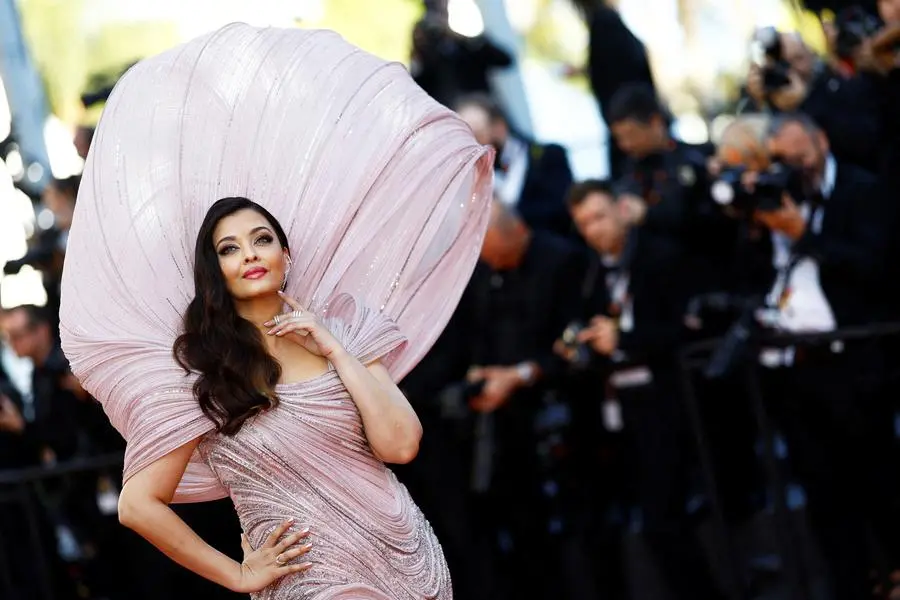PHOTO
In his concluding note, Kalki R Krishnamurthy (1899 – 1954), the author of Ponniyin Selvan, observes: “There are no set rules for writing novels, especially historical ones. In purely imaginary novels, the author has the freedom to decide the fate of all the characters.”
Kalki could well have been writing about cinema, more so about Ponniyin Selvan 1, the magnum opus by India’s master director Mani Ratnam, based on Kalki’s literary masterpiece.
Kalki builds his 2,400 plus page novel from historical figures, many of whom have shrines in their names or imposing monumental edifices built by them scattered all over from Tamil Nadu to Sri Lanka. And Mani Ratnam, not the first time in his career (think Iruvar), is challenged to work within these mostly real character-constructs.
To take that as your raw material for cinema needs extraordinary courage.
One, because, you are reaching out to a large section of viewers, who have read and re-read the novel, to accept (or reject) your cinematic interpretation. Everything you do stands exposed to minute scrutiny – the costumes, diction, music, mannerisms, body language, persona… and the inevitable cinematic liberties. After all, they cannot unread the novel to watch the movie without expectations.
Two, your cinema must also appeal to those viewers, who have no clue about what the novel is, the nuances of the story, the period setting, or the motives of the characters. They might watch the film from the perspective of an RRR or a Bahubali, seeking the adrenaline rush of lavishly mounted special effects and gravity-defying stunt sequences.
And what Mani Ratnam delivers is a masterclass in filmmaking that will delight the PS-uninitiated and also take those puritanical readers to a new high.
While Mani Ratnam remains largely faithful to the original subject matter, he plays around with key situations to build cinematic tempo.
He goes for the jugular as he presents one of Tamil history’s most tragic figures, Aditya Karikalan, a fierce, tempestuous warrior who is denied his ‘rightful’ crown. He was not one to fall prey to evil machinations, though they existed, but to unrequited love and extreme guilt.
Vikram, who sinks his teeth into Karikalan’s role, strides the screen as gallantly as he races his stallion, and shakes you up with one of the most brilliantly executed scenes in the film, as he screams: “This booze, songs, blood and fights… are all to forget her, to forget myself.”
A man, who at his height of glory, having powerful kings kneeling before him, could never have been more defeated within. And what a powerful portrayal!
Learning about an imminent danger to his father, the ruler Sundara Chola (Prakash Raj, brimming with gravitas), Karikalan sends his emissary Vandiyathevan – probably the most loved character in the novel, for his loyalty, bravery, and goofiness that he flings at every woman he comes across.
Karthi brims with life and wit in the role, as he banters with the royal spy, Azhwarkadiyan (Jayaram, on a roll); and uses guile and grit to evade the wrath of the Pazhuvettaraiyars (Sharath Kumar and Parthipan – both menacing).
Mani Ratnam’s sense of the visual, especially his love for red on screen, manifests into an astonishing set piece as he takes viewers through the palace intrigue, a secret meeting of chieftains to oust Karikalan. Just as AR Rahman’s breezy music sets the tone for Vandiyathevan’s road trip, here the maestro creates a powerful composition, backed by superb choreography.
More Mani Ratnam magic flows in how he conceives the meeting of Vandiyathevan with Kundaivi (the princess), who wields extreme power. Adithya believes she is the reason for his trauma, but she is loved to bits by their younger brother, the titular character Ponniyin Selvan alias Arulmozhi Varman.
Vandiyathevan becomes her emissary to Arulmozhi, and meets along the way, the bold boat girl, Poonguzhali (Aishwarya Lekshmi), who readers of the novel would know has bigger things in store in the sequel.
Trisha as Kundavai brings out a nuanced performance. Watch out for the moment when she learns about a ‘heart-breaking’ news regarding her younger brother in the climax. And as Arulmozhi Varman, Jayam Ravi brings class to his act. After all, he is enacting a character who shaped Tamil history, left a legacy with the magnificent temples he built, and was loved by all.
All of which takes us to that one character who defined a new course of history for the Chola Kingdom - Nandini, the wife of Periya Pazhuvettaraiyar, the girl young Adithya pined for; the woman whose request he defies to so deeply wound himself that at one point in the novel, he exclaims: “When you are about to kill an enemy, what will you do if a woman who loves him intervenes and begs you to spare him?”
As a woman who holds an ocean of hatred, as one who thirsts for revenge, as one who holds every man around her by one look, Aishwarya Rai delivers her career best as Nandini Just watch her eyes: See the flashes of every trauma, hatred, feigned love, and flirtations coming alive.
A film that celebrates the power of cinematography (Ravi Varman) and the intelligence of an editor (Sreekar Prasad), PS1 ends on a rather less compelling note: There is no ‘why did Kattappa kill’ like moment, but only an intriguing intercut to a new chapter that promises so much more in store for all the characters to evolve.
A moment of Ravan (also starring Vikram and Aishwarya and directed by Mani Ratnam) did flash through during the bitter encounter between Nandini and Adithya, but who is to complain when every other second exudes so much to learn, appreciate and be grateful about. And you leave the theatre with a bow: To Mani Ratnam, his team and his craft!
Starring: Aishwarya Rai, Vikram, Trisha, Jayam Ravi
Directed by: Mani Ratnam
Rating: A must-watch for those who love cinema
Copyright © 2022 Khaleej Times. All Rights Reserved. Provided by SyndiGate Media Inc. (Syndigate.info).





















